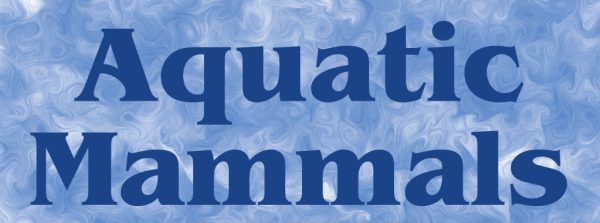Abstract: When wild harbor porpoises (Phocoena phocoena) are disturbed by (and perhaps flee from) anthropogenic sound, they probably do not forage, and thus they fast for a period of time. The rate of body mass loss during fasting is probably related to internal parameters such as initial body mass and blubber thickness, hormonal and reproductive state, and anxiety and activity levels, as well as to environmental parameters such as water and air temperature. Reduced blubber thickness causes reduced insulation which, in turn, increases heat loss to the environment. If blubber cannot be replenished by eating extra food, porpoises’ fitness may decline, which may eventually result in hypo¬thermia and pneumonia. To increase understanding of the effects of fasting, the body condition of two captive porpoises was quantified while they were kept under ambient temperature conditions similar to those experienced by wild conspecifics in the North Sea, and while they were near-fasting (i.e., almost fasting) for 24 hours (consuming 3 to 10% of the average daily food intake of their normal ration in each period). Replicated near-fasting periods took place during each of the four seasons of the year, and body mass (an indicator of body condition) declined in all 30 near-fasting periods (15 for each animal). For both porpoises in all seasons, body mass loss represented approximately 4% of initial body mass (of which ~0.7% was due to loss of food in the alimentary canal). Blubber thickness was difficult to quantify due to low measurement accuracy in relation to loss, but small decreases in blubber thickness (0 to 3 mm) occurred. A linear mixed-effects model showed that mass loss was greatest overall in autumn, lowest in summer, and intermediate in winter and spring. Harbor porpoises, therefore, appear to be most vulnerable to the effects of fasting due to disturbance in autumn, perhaps because their blubber layer has to increase in autumn to cope with the decreasing water temperature.
Key Words: body condition, anthropogenic sound, diet, iPCoD, DEPONS, nutrition, effect disturbance, energetics, odontocete
Document: Article
DOI: https://doi.org/10.1578/AM.45.1.2019.37
Page Numbers: 37-47

